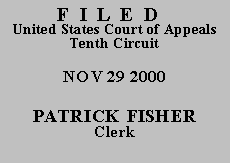

| AMIN ABDUS SALAAM,
v.
CORRECTIONS CORPORATION OF
AMERICA |
|
Because the district court did not specifically state whether it dismissed Salaam's § 1983 claims under 28 U.S.C. § 1915(e)(2)(B)(i) as "frivolous" or under § 1915(e)(2)(B)(ii) for failure to state claims for which relief may be granted, we conduct a de novo review of the dismissal order. See Perkins v. Kansas Dep't of Corrections, 165 F.3d 803, 806 (10th Cir. 1999). In determining whether dismissal is proper, we accept the allegations of the complaint as true and construe the allegations, along with reasonable inferences to be drawn from them, in the light most favorable to the plaintiff. Id.
After a review of the complaint, the accompanying materials, and filings on appeal, we find no error in the district court's determination that Salaam had no due process right to a particular classification and that his allegations did not support an equal protection claim. Under the Due Process Clause, a change in "an inmate's prison classification ordinarily does not deprive him of liberty[ ] because he is not entitled to a particular degree of liberty in prison." Templeman v. Gunter, 16 F.3d 367, 369 (10th Cir. 1994); see also Sandin v. Conner, 575 U.S. 472, 484 (1995). With regard to Salaam's due process claim, we conclude that his allegations, even if true, do not "present a dramatic departure from the basic conditions of" his sentence and confinement. Sandin, 575 U.S. at 485. Because Salaam has not alleged the violation of a liberty interest, we conclude the district court properly dismissed the due process claim.
Concerning his equal protection claim, Salaam alleges disparate treatment because of his "geographical origin" as a "D.C. Prisoner[]." R., Doc. I at 5. Because he has not alleged that "defendants treated him differently because of any suspect classification," he "therefore must prove that the distinction between himself" and inmates from places other than the District of Columbia "was not reasonably related to some legitimate penological purpose." Templeman, 16 F.3d at 371 (citing Turner v. Safley, 482 U.S. 78, 89 (1987); City of Cleburne v. Cleburne Living Ctr., 473 U.S.432, 440 (1985)). He fails to do so.
Defendants provided their reasons for the placement decisions in a response to Salaam's grievance:
Our decision was based upon your own past behavior. . . . You were involved in a staff assault at the NE Ohio facility. Also, you have a disciplinary report for possession of a knife in your file. Furthermore, it is quite obvious from your crime and length of sentence imposed that our decisions were appropriate.
Our actions of placing you in segregation were founded on the legitimate penalogical interest of ensuring that a potentially violent inmate did not have the opportunity to assault or possibly severely injure a staff member or another inmate.
R., Doc. 11, Ex. 2 (Memorandum). It is evident that defendants' classification decisions were related to a legitimate penalogical purpose and, accordingly, dismissal was the appropriate disposition of Salaam's equal protection claim.
As a final matter, we turn to Salaam's assertion that the district court erred in denying his motion to appoint counsel. "We review the denial of appointment of counsel in a civil case for an abuse of discretion." Rucks v. Boergermann, 57 F.3d 978, 979 (10th Cir. 1995). In considering whether to appoint counsel, the factors the district court should take into account include "'the merits of the litigant's claims, the nature of the factual issues raised in the claims, the litigant's ability to present his claims, and the complexity of the legal issues raised by the claims.'" Id. (quoting Williams v. Meese, 926 F.2d 994, 996 (10th Cir. 1991)). Because Salaam's claims lack merit, the district court did not abuse its discretion in denying the motion to appoint counsel.
AFFIRMED. The mandate shall issue forthwith.
Entered for the Court
Carlos F. Lucero
Circuit Judge
*. The case is unanimously ordered submitted without oral argument pursuant to Fed. R. App. P. 34(a)(2) and 10th Cir. R. 34.1(G). This order and judgment is not binding precedent, except under the doctrines of law of the case, res judicata, and collateral estoppel. The court generally disfavors the citation of orders and judgments; nevertheless, an order and judgment may be cited under the terms and conditions of 10th Cir. R. 36.3.
1. Salaam has not appealed the district court's denial of injunctive relief or order directing Salaam to file an amended complaint specifying the factual basis for his claim of retaliatory price increases.